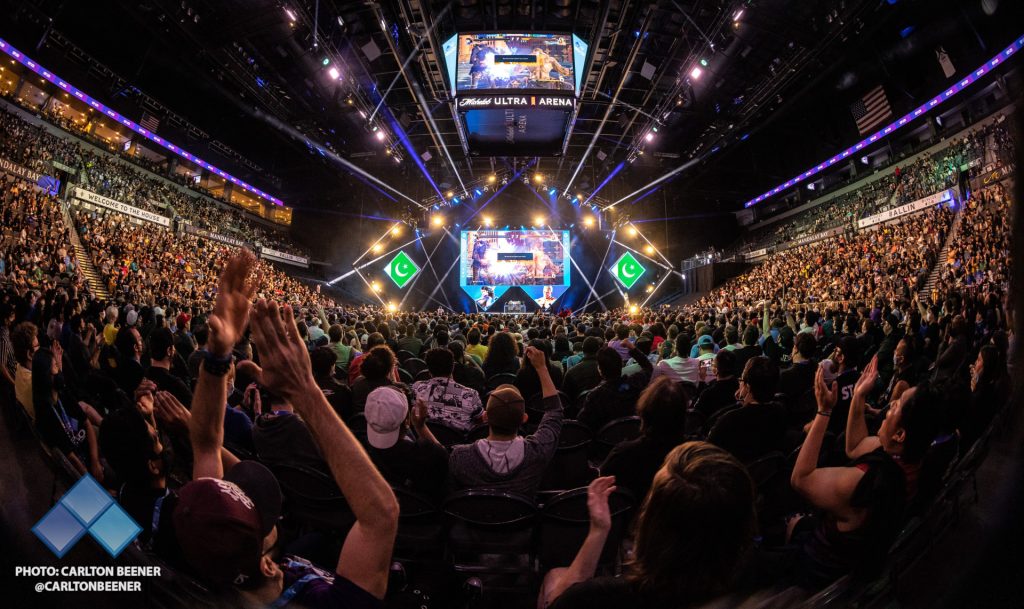
2023 is officially upon us. To inaugurate the year, we asked industry leaders to make predictions on the year ahead — both for their companies, and the industry at large.
In past editions, bold predictions have been laid down, such as Tundra Esports aiming to win The International (spoiler: it did). Below, you’ll find widespread agreement and divergence on everything from the challenges of the macroeconomic environment, the scenes to watch in 2023, and what needs to change in the industry this year.
Read on for optimism, pessimism and hot takes regarding the industry’s direction for 2023. This is part two of our industry series; make sure to check out what everybody said about 2022, and don’t forget to check out what stakeholders predicted for 2022!
What are your predictions for the course of the esports industry in 2023?
The end of last year was a tough time for many companies, with job cuts and company closures across the board. We asked stakeholders how the industry’s trajectory will change over the next 12 months.
Stuart Saw, CEO and Co-Founder, RTS: “With the upcoming recession, we’re going to see a lot of challenges to the current esports business model. I was around in the last recession and it was brutal. Whilst we’re fortunately in a far better position than we were last time, we will see most organisations attempt to build runways to see them through upcoming economic challenges.”
Josie Brown, SVP of Brand, Content and Marketing, Team Liquid: “I expect other organisations to continue growing and expanding their brands to the point where they can exist independently of the games we might primarily associate them with. Team Liquid is so much more than one or two teams in a circuit or league. We’re a global organisation that has a chance to define ourselves on our own terms, and that’s a great place to be.”
Grant Zinn, CEO, Beastcoast: “I think most organisations will be using 2023 as a time to focus on strategic growth, as the era of VC backed organisations monetising only by jersey sponsorship becomes a thing of the past. We’ll need to be creative and careful on how we expand to make sure our organisations and teams have longevity in the space.”
Jérôme Coupez, CEO, Prodigy Agency: “There are a lot of challenges, especially for teams, around developing their revenue streams and maximising monetisation. I really hope that all teams succeed in doing this.
“A lot of games continue to grow with large audiences, allowing esports to grow globally, and it’s not going to stop soon. I just hope the whole industry can find ways to redistribute the revenue properly so all stakeholders can continue to grow and make it sustainable for everyone.”
Wouter Sleijffers, CEO, EXCEL ESPORTS: “Times will remain challenging which means that some businesses will have to merge, and some will not survive, unfortunately. That said, premium esports will see a further boost with more brands coming in as ways partners can benefit and continue to make a bigger impact. Women’s competitions will see a big rise! I also predict further regulation and legislation that benefits talent.”
Nicolas Maurer, CEO, Team Vitality: “In this difficult economy, it has become more complicated to access capital on the market. And since esports teams have still not yet found the proper path to profitability, we must collectively learn how to solve the equation of doing better, but with fewer resources. That is why 2023 may be the age of maturity for esports organisations.
What are some of your organisation’s targets for next year?

2023 is here, and so are the new KPIs. We asked esports companies what their targets are for the coming year, and summarised them below.
Beastcoast: Invest more into the grassroots scene, as well as community events around Melee and Pokemon.
ESL FACEIT Group: Support indie, AA and AAA developers earlier in the game development cycle, and build out its position ‘beyond gameplay’.
EXCEL ESPORTS: To win titles and grow its fanbase as well as develop “beyond the core of esports”.
Prodigy Agency: Look to expand its business into key regions such as South Korea, creating opportunities for players to have long-term sustainability through multi-year structured deals, as well as increasing IP strategies.
Team Liquid: To be in championship conversation in every game it competes in, whilst also continuing to build a joint identity in order to earn more fan heartshare.
Team Vitality: Celebrate its 10th anniversary, win every single competition (LEC, VCT, lift the CS:GO Major trophy in Paris in front of a home crowd), and get fans using its V.Hive mobile app.
The Story Mob: “Growth!” Continuing to bolster its operations, build on what it has achieved in 2022, and explore expansion.
Tundra Esports: “Back-to-back winners of The International would be nice.” Plus, to challenge for other major titles, and create more content around its ambassadors.
What do you think the industry needs to work on next year?

What does the industry need to do differently in 2023 to enact positive change? What will help move the industry forward?
Jérôme Coupez, CEO, Prodigy Agency: “I think the main challenge for everyone is to keep developing ways to monetise the incredible audiences and fan base being built in esports — by providing true meaningful products and contents.
“There is still a lot we can do for esports to keep growing and I truly think we have some of the most innovative minds working in our industry!”
Evgeniy Roshchupkin, CEO, Tundra Esports: “I’d like to see esports breaking into mainstream streaming services. The rivalries, competitions and player stories are sometimes even more exciting than in sports, while content and production capabilities in the esports are top notch. In general, rights commercialisation would be one of the main opportunities for esports businesses to scale successfully in the coming years.”
Josie Brown, SVP of Brand, Content and Marketing, Team Liquid: “For me, watching our Women’s Brazilian VALORANT team thrive this year just reinforced how much more can be done to support women in esports. I want to continue and grow Team Liquid’s leadership presence here, empowering female pros and content creators to reach new heights. Hopefully, the industry will follow suit.
Brian Ward, CEO, Savvy Games Group: “There’s room to improve live experiences and how esports are broadcast. Enough to eventually bring them up to the same level of popularity as Formula 1 or football (soccer).
“The sector, understandably, has a specific appeal — mainly for the ever-growing audience of gamers or fans of specific competitive games — and we need to broaden that appeal more generally. Accessibility to live or broadcasted esports matches is part of the issue when it comes to appealing to a wider audience.”
Which esports title do you think will undergo the most development in 2023?

One title, in particular, has captured almost everybody’s imagination going into 2023, for obvious reasons. But there was also unexpected answers amongst the fray.
Miles Yim, Associate Director, The Story Mob: “It’s VALORANT. I’m measuredly optimistic that the resources generated by franchising — including the linking of international ecosystems in VCT Americas, EMEA and APAC — will spur viewership growth and create compelling storylines that’ll engage more fans.
Stuart Saw, CEO and Co-Founder, RTS: “2023 and 2024 will be the years of the Fighting Game Community [FGC]. We’ve got new titles across the community and with an already strong audience in the market we expect it will grow to new highs.”
Wouter Sleijffers, CEO, EXCEL ESPORTS: “Brawl Stars, or at least that’s my wishful thinking! I’d love to see one of the mobile competition games make a big impact in our region as I believe that it should get more credit than what it gets now in western esports. Otherwise, undoubtedly we’ll see more development in VALORANT for 2023.”
Grant Zinn, CEO, Beastcoast: “It’ll be exciting to watch the growth of VALORANT in real-time with their shift to partnership. There’s always a learning curve with any new sport, but the strides they’ve made so far are impressive and it’ll be a great case study for what does and doesn’t work when legitimising a new esport. And of course, as an organisation with a significant presence in the FGC, we’re very hyped about Project L and can’t wait to learn more. Fingers crossed for open beta in 2023!”
Craig Levine, Co-CEO, ESL FACEIT Group (EFG): “I think there’s still a lot more development and growth to come from the mobile gaming space with new games that will come to market and top mobile esports will continue to evolve.
“From a participation standpoint, we think this is one of the most accessible platforms for esports. Our Snapdragon Pro Series saw massive participation and audience growth of 60% across our entire programme: PUBG mobile, Clash of Clans and Brawl Stars.”
That’s it for our 2023 esports industry predictions. Many thanks to all of the contributors who made this review possible across both the reflections and predictions pieces. If your company wants to contribute next year, please reach out at news@esportsinsider.com. Looking for our industry review of 2022? Click here!
